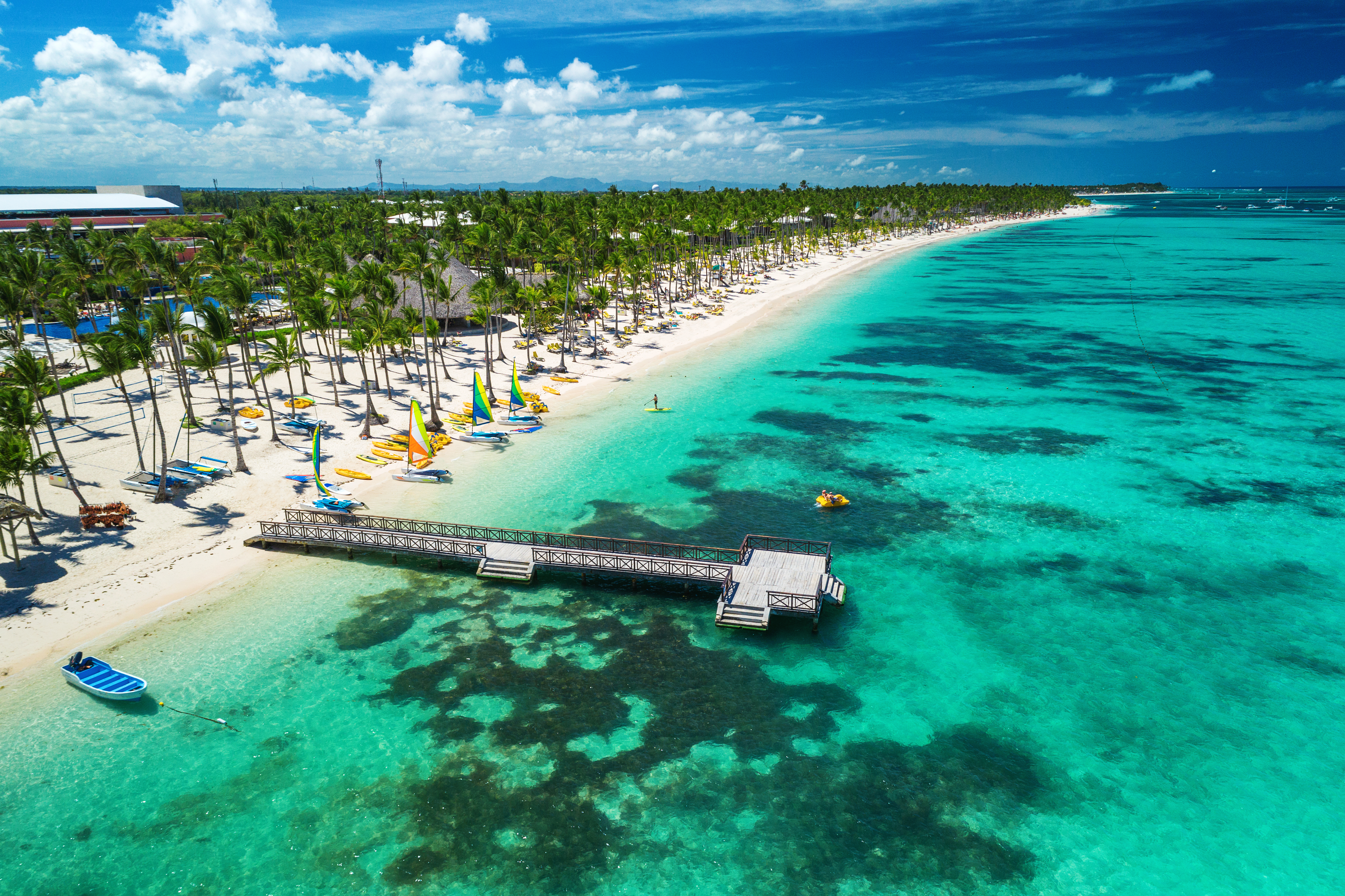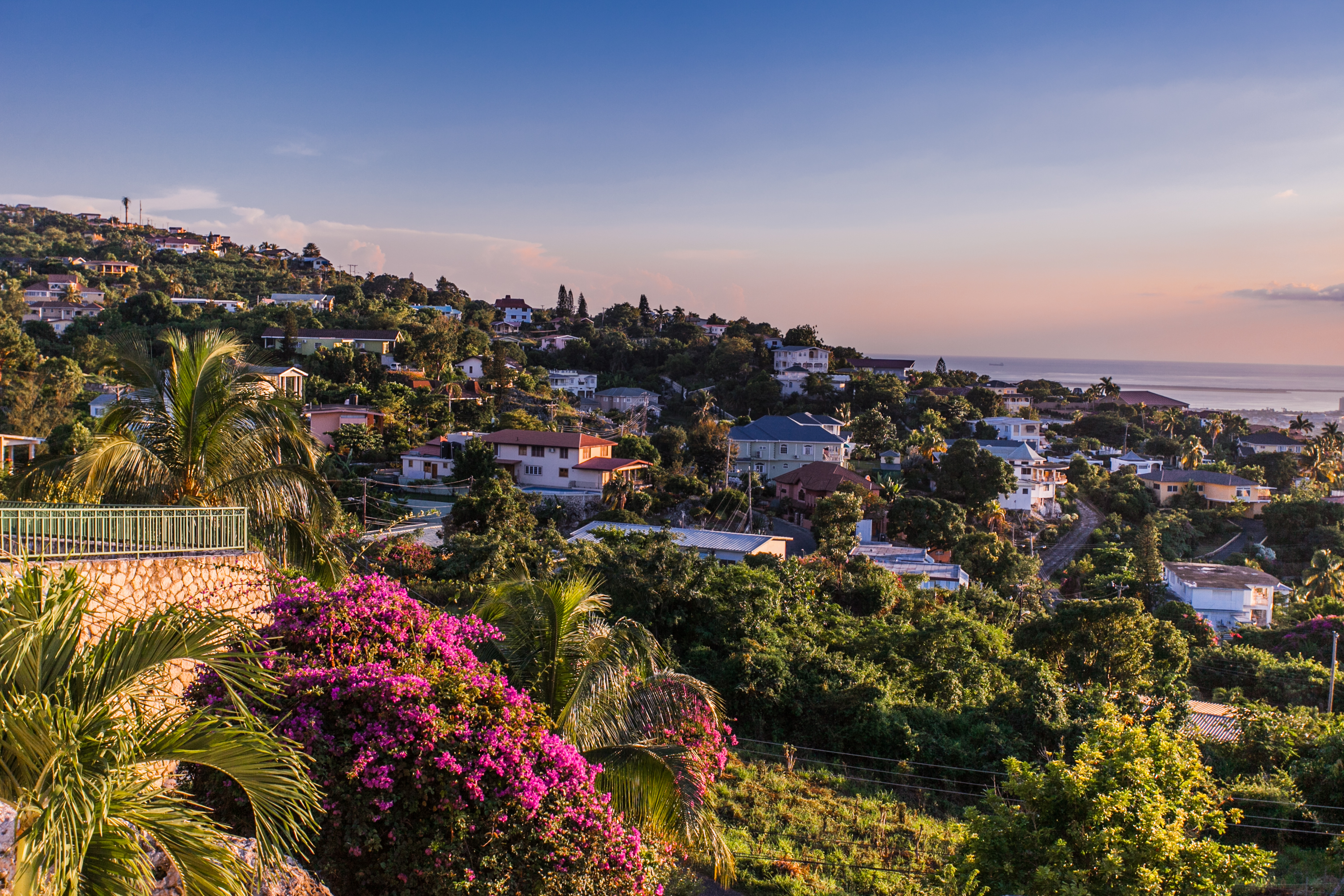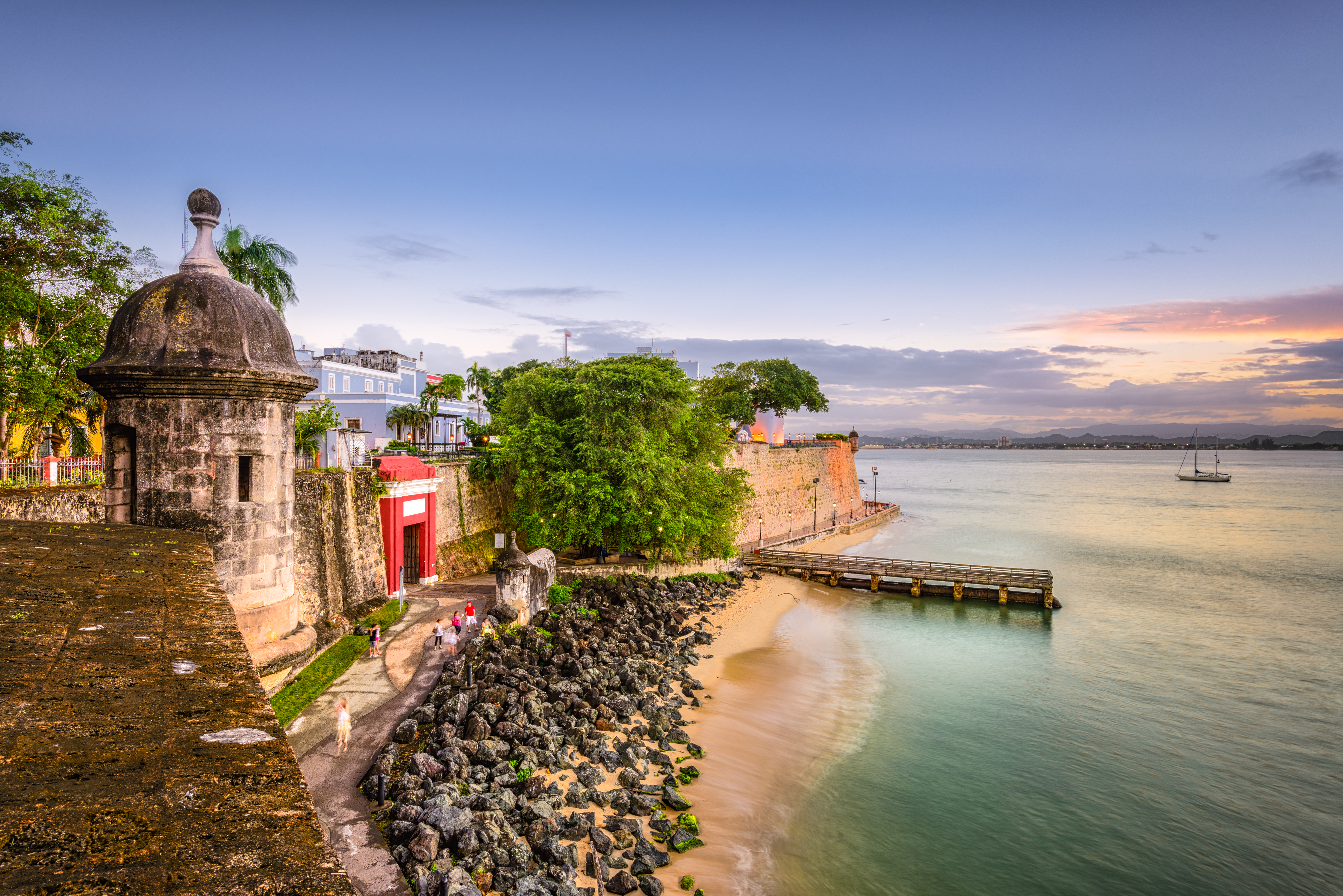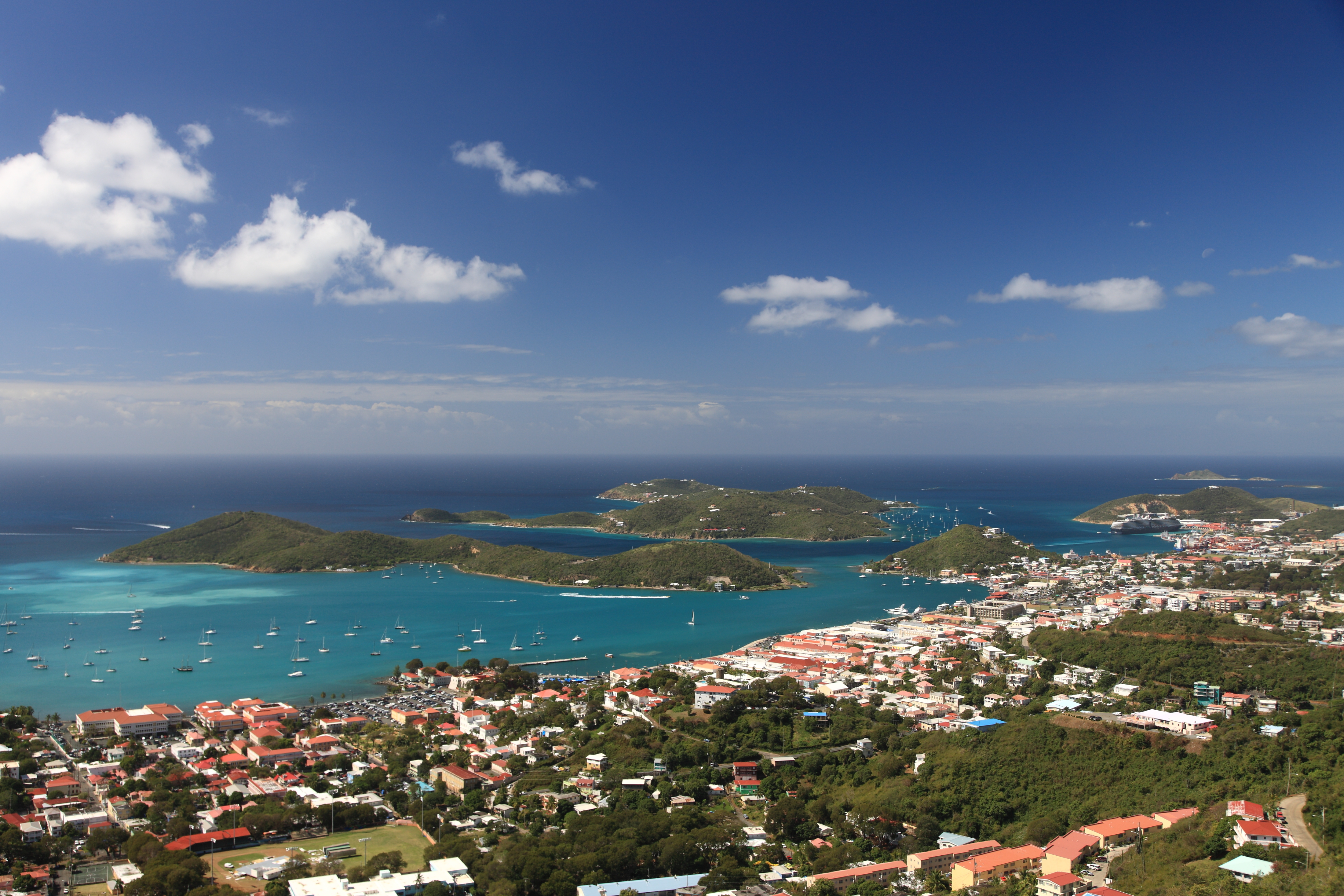The Caribbean’s Christian Heritage: A Closer Look
The Caribbean is famous for its beaches and beauty. As winter approaches, some of you may be dreaming of its tropical climate. But beyond the sun and sand, have you heard about the spread of the gospel among these legendary islands?
When visiting, you won’t just experience the tropical beauty that makes the Caribbean a world-famous destination, you’ll also be immersed in a complex religious history. We’ve always believed that cruising was the best way to explore the islands of the Caribbean, and a port day in cities like Kingston, Jamaica, or St. Thomas in the Virgin Islands provides excellent opportunities to explore each island’s spiritual heritage. Here are a few Christian “firsts” related to this storied region.
The First Baptisms in the Dominican Republic

A group of 12 missionaries from Spain arrived in the New World in 1494 and landed on the island of Hispaniola, now known as the Dominican Republic and Haiti. Within the next two years, the missionaries realized the first fruits of their labor when a local tribal chief, Guaticaba—who later took the name Juan Mateo—and members of his family were baptized into the faith.
This sparked the first Christian community in the New World. Prior to his conversion, Chief Guaticaba served as a translator for the foreign missionaries on their expeditions to the island’s interior. Only a few years after his baptism, Chief Guaticaba was martyred for his faith. History recounts him proclaiming as he was being killed, “Dios naboria daca, Dios naboria daca” (“I am the servant of God”).
The First American Missionary in Jamaica

Born into slavery in Virginia in 1752, George Liele came to Christ at the age of 21. Remarkably, because of his passion for the gospel, Liele was given his freedom. Liele went on to found the First African Baptist Church in Savannah, Georgia. But in 1782, worried that reenslavement might be in his future, Liele moved with his wife and four children to Jamaica. The family became the island’s first American missionaries.
Liele originally preached to enslaved people in Kingston and partnered with British missionaries to build one of the first Jamaican houses of worship. He worked odd jobs to support himself while ministering to his congregation, most of whom were illiterate. Known for reading the Bible to them, he encouraged them to seek freedom in Christ and from oppression.
His ministry was not without opposition; he was met with persecution from local enslavers. This did not stop the spread of Christianity throughout Jamaica. By the 1850s, more than 20,000 Baptists lived on the island. Although Liele never lived to see the abolishment of the British slave trade—he died 10 years before its end—his legacy inspired a generation of new believers.
The First Protestant Church in Spanish Territory in Puerto Rico

Under Spanish colonization of the Caribbean islands, Roman Catholicism was the only permitted form of Christianity. But as this policy relaxed in later centuries, Protestant services began to emerge in the city of Ponce. In 1869, British residents established an Anglican congregation. It was the first evangelical church in the entire Spanish Empire of the Americas. That church, the Iglesia de la Santisima Trinidad (Holy Trinity Church), was financed with the help of Queen Victoria, who sent materials, including a bell cast in England.
But religious intolerance returned after the Spanish Republic fell in 1874 and the monarchy was reinstated. Colonial authorities ordered Holy Trinity to close, but Queen Victoria intervened and allowed the church to function under three conditions: It could not ring its bell, its front doors would always remain closed and its services would be offered in English only.
By the time the United States invaded the island during the Spanish-American War in 1898, Holy Trinity was still the only Protestant church in Puerto Rico. After decades of silence, Holy Trinity’s bell rang out to celebrate the restoration of religious liberty. Known today as the Freedom Bell, it was reinstalled in the church upon the building’s reconstruction in 1926.
First Lutheran and Protestant Reformed Dutch Churches in St. Thomas, U.S. Virgin Islands

While Spain colonized the larger islands, including Puerto Rico, it left smaller islands like St. Thomas mostly unattended. These soon became havens for pirates including the famous Blackbeard. Modern pirate folklore has likely exaggerated that period, but parts of the Caribbean definitely were once wild frontiers marked by looting and violence.
To defend against these buccaneers, the Danish West India Company established the city of Charlotte Amalie in 1671 and quickly began construction on Fort Christian. Now a museum, this landmark is the oldest standing structure in the U.S. Virgin Islands. The fort itself became the site of some of the earliest services for the St. Thomas Protestant Reformed Dutch Church. This congregation built its first church in the mid-1670s, and it remained in use for the next 60 years.
To this day, the church remains the oldest congregation in the Virgin Islands and, despite several fires and reconfigurations, still hosts Sunday services. Fort Christian remains open for guided tours to cruise passengers today.
All these “firsts” are well-documented historical events, but the story of Christianity in the Caribbean isn’t just about the past. The spread of the gospel remains an ongoing process in the vibrant neighborhoods of places like Jamaica, St. Thomas, the Dominican Republic and Puerto Rico.
Today’s travelers on Christian cruises have the unique opportunity to participate in that evangelistic legacy everywhere they go. As the Apostle Paul wrote to the newly planted church at Rome in the first century, “How, then, can they call on the one they have not believed in? And how can they believe in the one of whom they have not heard? And how can they hear without someone preaching to them?” (Romans 10:14).
Perhaps God intends your cruise to be more than just a relaxing getaway. As you prepare for your own landmark spiritual experience in the Caribbean, consider whether He might arrange opportunities for you to share your faith in these warm, beautiful places.






